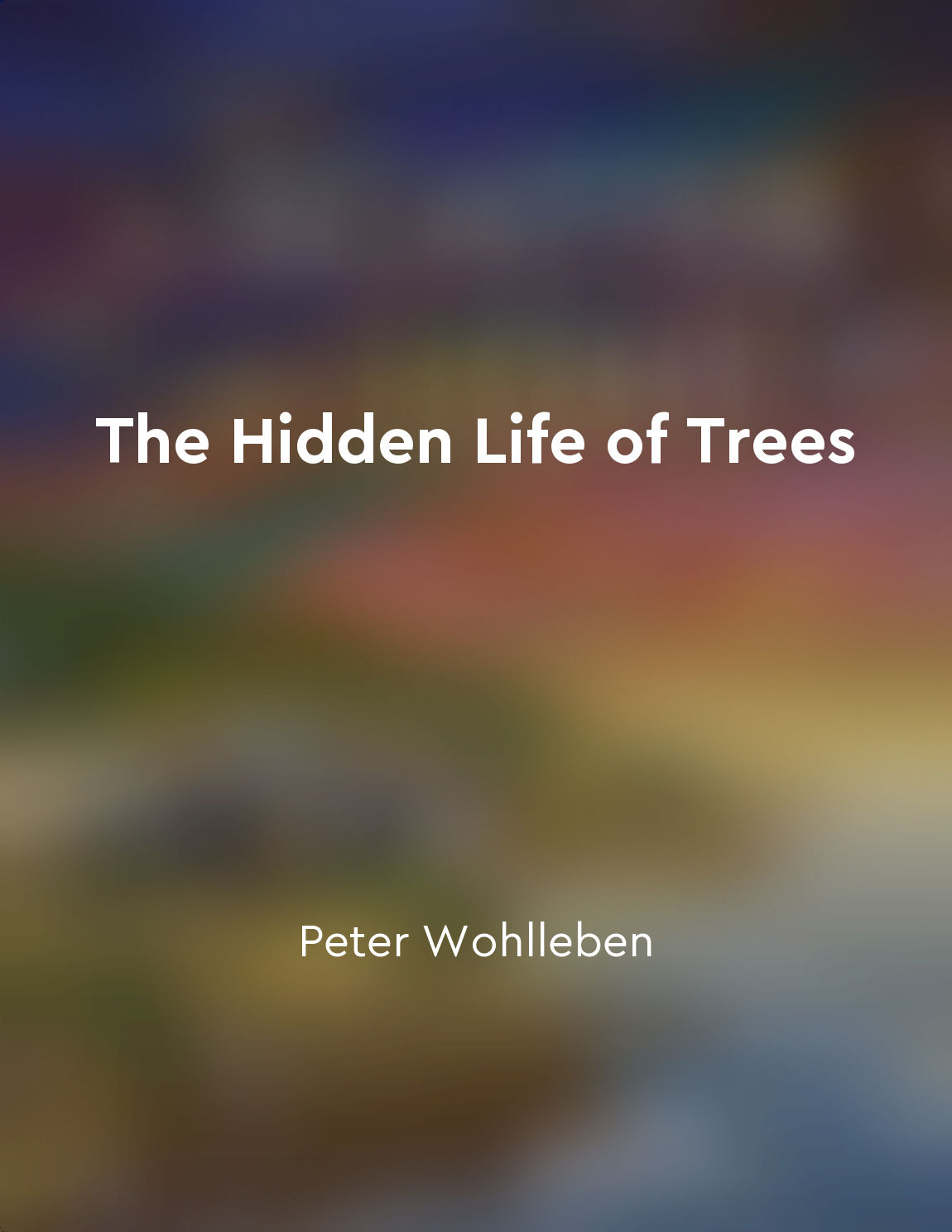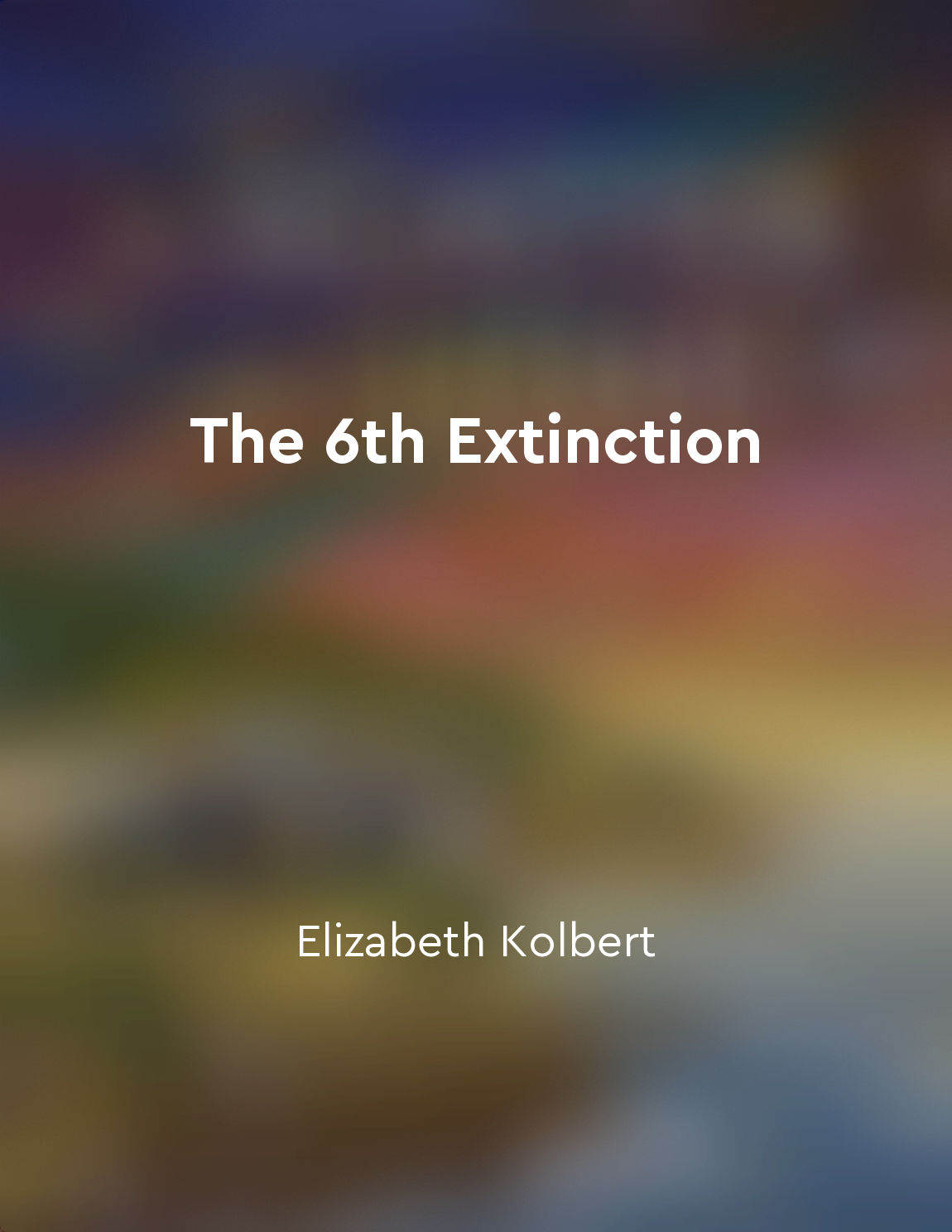Wildlife populations decline due to loss of habitat from nonnative plants from "summary" of Bringing Nature Home by Douglas W. Tallamy
Loss of habitat from nonnative plants is a major factor contributing to the decline of wildlife populations. When nonnative plants take over an area, they often outcompete native plants for resources such as sunlight, water, and nutrients. This results in a decrease in the availability of food and shelter for native wildlife species. Native plants have evolved alongside native wildlife species and provide them with the food and shelter they need to survive. When nonnative plants replace native plants, wildlife species that depend on those specific plants for food and shelter are left without the resources they need to thrive. This can lead to a decline in wildlife populations as individuals struggle to find adequate food and shelter. In addition to outcompeting native plants, nonnative plants may also lack the necessary chemical defenses to protect against herbivores. As a result, herbivores may avoid feeding on nonnative plants, further reducing the availability of food for native wildlife species that rely on those herbivores as a food source. Furthermore, nonnative plants may not provide the same level of habitat complexity as native plants. Native plants often form complex relationships with other species, such as pollinators and seed dispersers, that contribute to the overall health and diversity of an ecosystem. When nonnative plants dominate an area, these important relationships may be disrupted, leading to a decline in biodiversity and ecosystem function.- The loss of habitat from nonnative plants can have far-reaching consequences for wildlife populations. By understanding the importance of native plants in supporting wildlife species, we can take steps to restore native plant communities and create healthier habitats for native wildlife.
Similar Posts
Embracing uncertainty in the pursuit of a better future
The idea of moving forward into an uncertain future can be daunting. However, it is precisely this uncertainty that can lead to...

They can sense approaching danger and warn others
Trees have a remarkable ability to communicate with each other. When danger is near, they can pick up on the approaching threat...

Scientists are working to understand and combat the extinction crisis
Scientists are on the front lines of the battle against the extinction crisis, working tirelessly to unravel its complexities a...
Chemical companies prioritize profit over ecological health
Chemical companies, driven by the pursuit of profit, often neglect the consequences of their actions on the environment. The de...
Global cooperation is essential
The Anthropocene is a new geological epoch characterized by the impact of human activities on the Earth's systems. In this age ...

Nutrient levels in grass impact cancer development
Voisin's research highlights the critical connection between the quality of grass and the development of cancer in animals. He ...
The redwoods stand as a testament to the resilience and power of the natural world
The towering redwoods of the Pacific Northwest are ancient giants, some reaching heights of over 300 feet and living for thousa...
Understanding Earth's past can inform our future decisions
By studying Earth's past, we gain valuable insights into how our planet has changed over time, allowing us to better understand...
Biodiversity loss and its consequences
Biodiversity loss is not just a scientific concern; it is a deeply philosophical and existential issue. The consequences of thi...
The Serengeti in Africa serves as an important case study
The Serengeti in Africa is a vast and diverse ecosystem that has attracted the attention of scientists for decades. It is home ...

